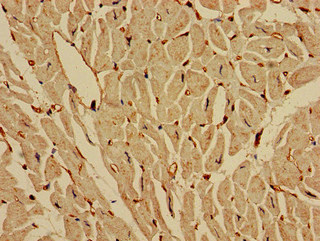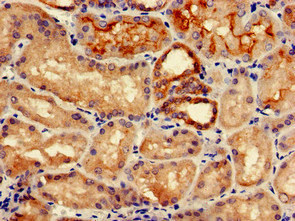Full Product Name
Rabbit anti-Homo sapiens (Human) IREB2 Polyclonal antibody
Alternative Names
ACO3 antibody; FLJ23381 antibody; IRE BP2 antibody; IRE-BP 2 antibody; IREB 2 antibody; IREB2 antibody; IREB2_HUMAN antibody; Iron regulatory protein 2 antibody; iron responsive element binding protein 2 antibody; Iron-responsive element-binding protein 2 antibody; IRP 2 antibody; IRP2 antibody; IRP2AD antibody; OTTHUMP00000185022 antibody
Immunogen
Recombinant Human Iron-responsive element-binding protein 2 protein (107-216AA)
Immunogen Species
Homo sapiens (Human)
Conjugate
Non-conjugated
The IREB2 Antibody (Product code: CSB-PA011813LA01HU) is Non-conjugated. For IREB2 Antibody with conjugates, please check the following table.
Available Conjugates
| Conjugate |
Product Code |
Product Name |
Application |
| HRP |
CSB-PA011813LB01HU |
IREB2 Antibody, HRP conjugated |
ELISA |
| FITC |
CSB-PA011813LC01HU |
IREB2 Antibody, FITC conjugated |
|
| Biotin |
CSB-PA011813LD01HU |
IREB2 Antibody, Biotin conjugated |
ELISA |
Purification Method
>95%, Protein G purified
Concentration
It differs from different batches. Please contact us to confirm it.
Buffer
Preservative: 0.03% Proclin 300
Constituents: 50% Glycerol, 0.01M PBS, pH 7.4
Tested Applications
ELISA, IHC
Recommended Dilution
| Application |
Recommended Dilution |
| IHC |
1:20-1:200 |
Storage
Upon receipt, store at -20°C or -80°C. Avoid repeated freeze.
Lead Time
Basically, we can dispatch the products out in 1-3 working days after receiving your orders. Delivery time maybe differs from different purchasing way or location, please kindly consult your local distributors for specific delivery time.
Usage
For Research Use Only. Not for use in diagnostic or therapeutic procedures.






